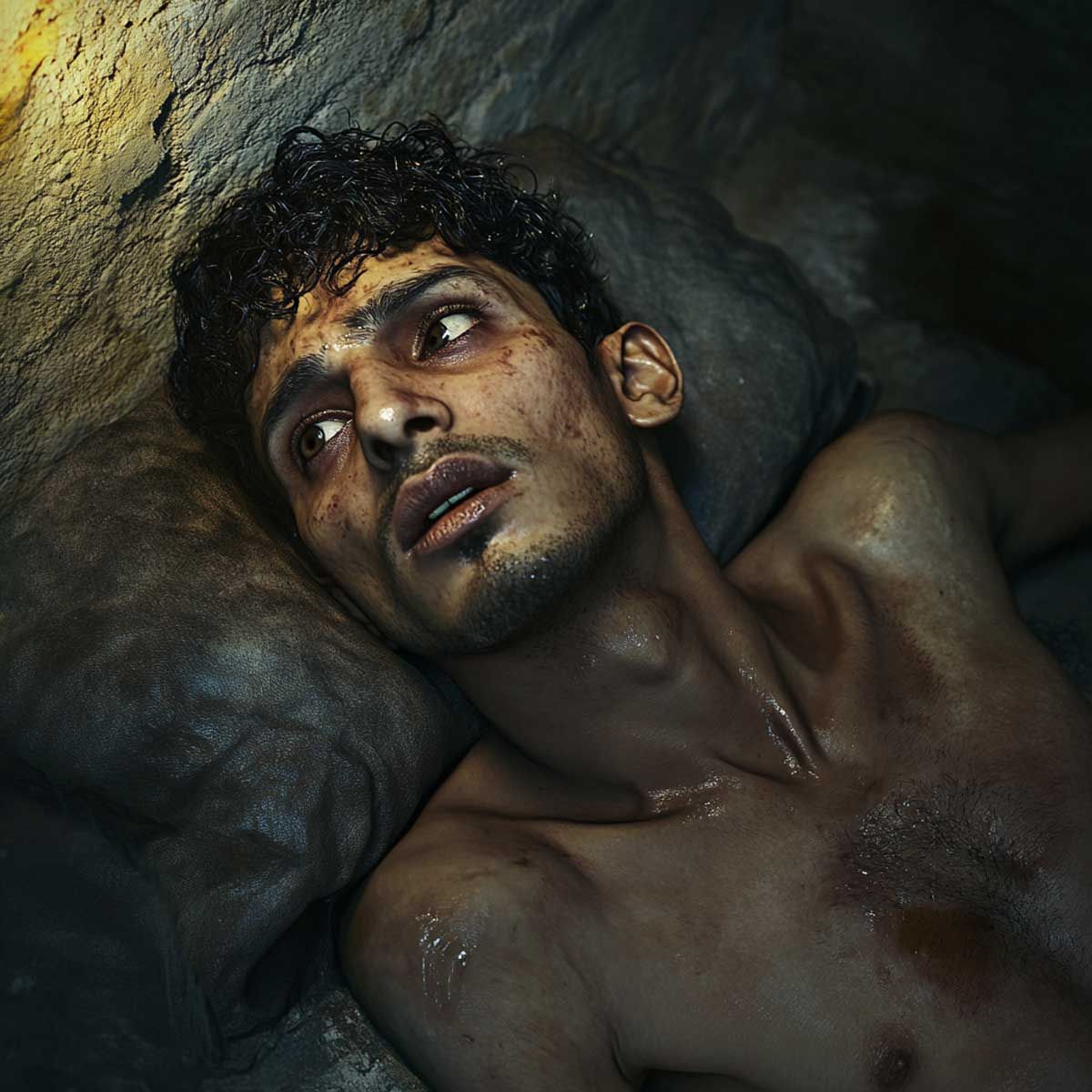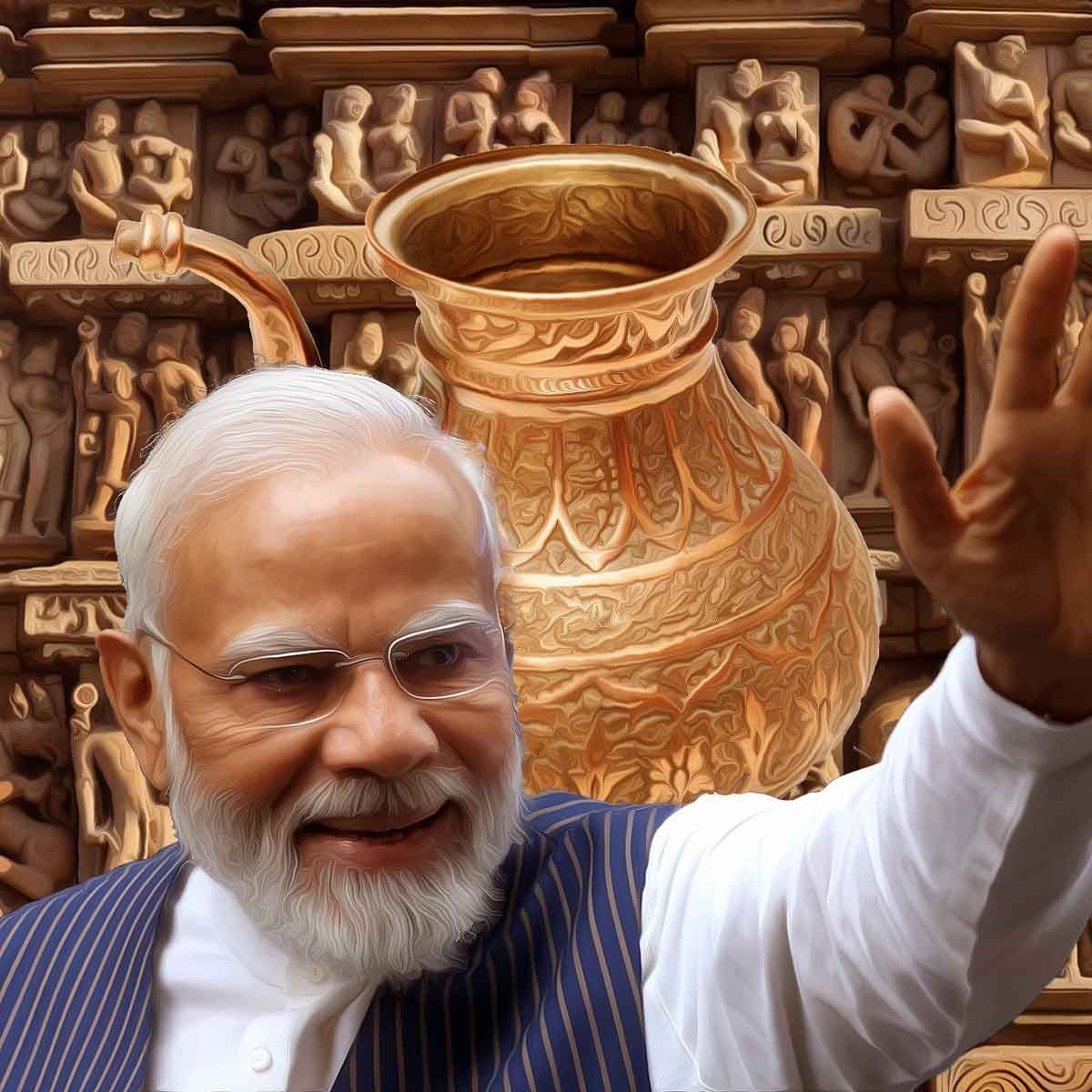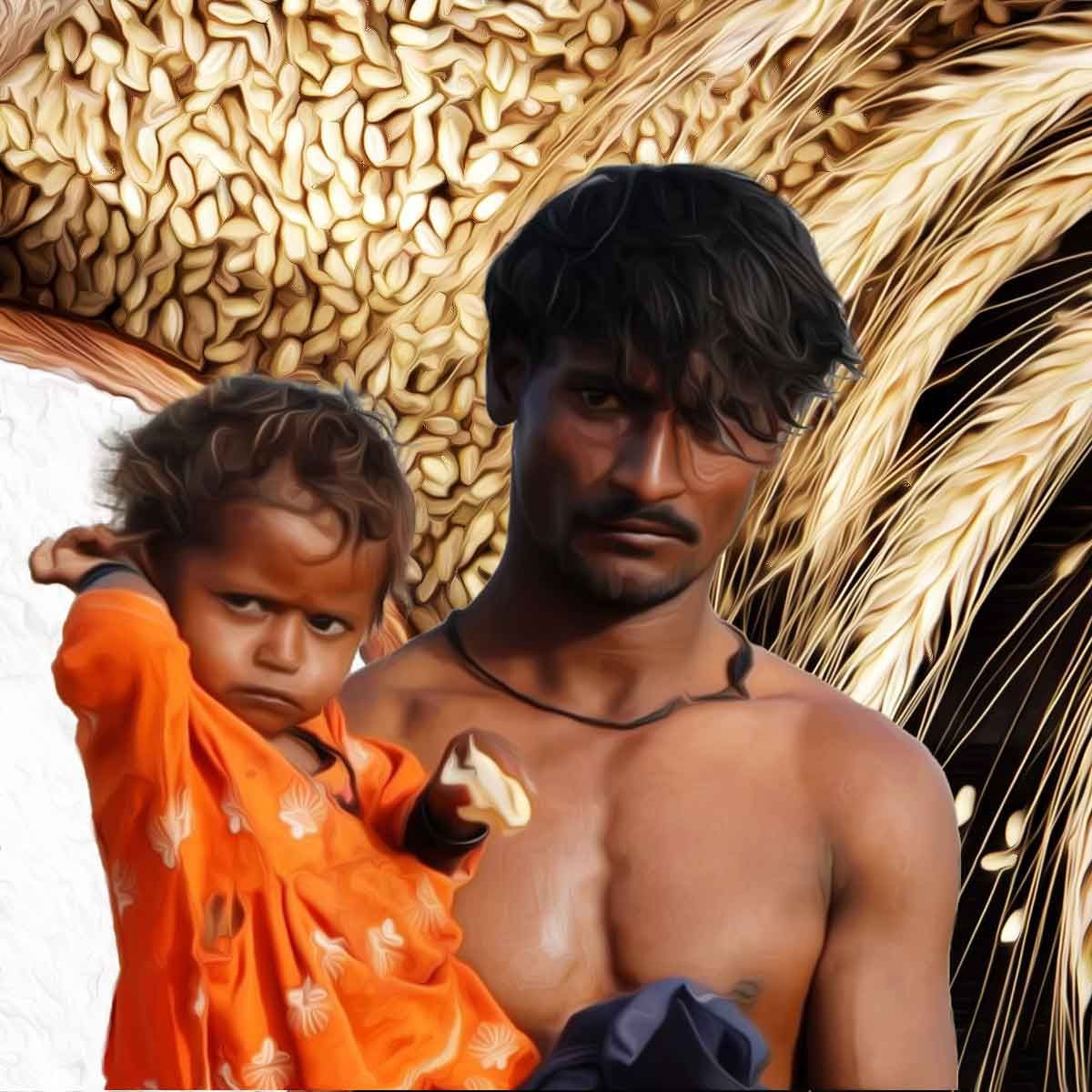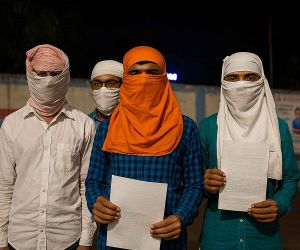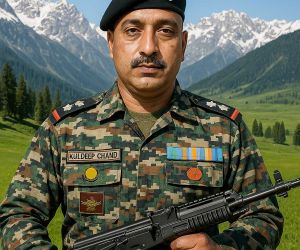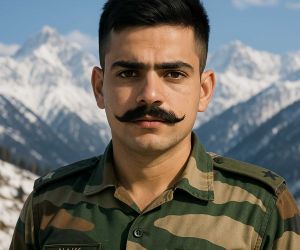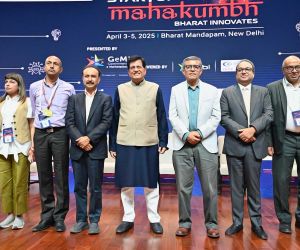MORE COVERAGE
Twitter Coverage
Satyaagrah
Written on
Satyaagrah
Written on
Satyaagrah
Written on
Satyaagrah
Written on
Satyaagrah
Written on
JOIN SATYAAGRAH SOCIAL MEDIA
Canada, post stirring a diplomatic tempest over unproven claims, now cites social media threats to realign its staff in India, emphasizing Vienna conventions, and urge India to ensure security for their diplomats, as they do for Indian officials in Canada

In the wake of escalating diplomatic tensions between India and Canada, the latter has taken a precautionary measure, affecting its staff presence in India. The High Commission of Canada in India announced its decision to "temporarily adjust" its staff presence, pointing to concerns over alleged threats received by some of its diplomats on social media platforms.
|
The official statement issued by the Commission read, “Our High Commission and all consulates in India are open and operational and continue to serve clients. In light of the current environment where tensions have heightened, we are taking action to ensure the safety of our diplomats. With some diplomats having received threats on various social media platforms, Global Affairs Canada is assessing its staff complement in India.” The statement strongly emphasized Canada's expectation from India, urging the country to respect the Vienna conventions and ensure the safety of their diplomats and consular officers.
Despite its declaration, critics argue that Canada is playing the victim card after sparking a diplomatic controversy with its baseless allegations against India. The emphasis on the responsibility of nations to protect foreign diplomats, as per the Vienna conventions, was clear in the statement. “In the context of respect for obligations under the Vienna conventions, we expect India to provide for the security of our accredited diplomats and consular officers in India, just as we are for theirs here,” it noted.
Further emphasizing Canada's stance, a spokesperson from the country’s foreign ministry iterated the decision as a step taken to ensure the safety of Canadian diplomats amidst the rising tensions.
|
India's Missions in Canada Heighten Security Amidst Rising Threats
In light of recent provocations by the terrorist organization Sikhs for Justice (SFJ), security protocols for India's missions in Canada have been significantly ramped up. The SFJ, notorious for its provocative posters such as "Kill India" released in July, has intensified its activities following the assassination of Nijjar on June 18. The organization has long held New Delhi accountable for the incident.
In a worrying development, the SFJ declared its intentions to “shut down Indian missions” on September 25, going as far as labeling them as “terror houses.” This alarming threat compelled India to seek fortified security for its high commission located in Ottawa, in addition to its consulates in Toronto and Vancouver. Contrarily, in a seemingly dismissive tone, Canada's public safety minister, Dominic LeBlanc, implied that Canada doesn't recognize India’s travel advisory, leaving it to New Delhi to clarify its issuance.
SFJ's extremist ideology and actions aren't limited to just threats against Indian missions. This group, which was banned in India in 2019 due to its pro-Khalistan activities, has also directly threatened Hindus of Indian origin in Canada. They accused this community of 'promoting violence' by recognizing Nijjar’s assassination, and imperatively told them to leave Canada.
These distressing events prompted Chandra Arya, a member of Canada's ruling Liberal Party, to address the matter in the Canadian House of Commons on September 20. Highlighting the palpable fear amongst the Hindu-Canadian community, he stated, “I have heard from many Hindu-Canadians who are fearful after this targeted attack. I urge Hindu-Canadians to stay calm but vigilant.”
|
The Escalation of Threats Against Hindu-Canadians
Recent developments have once again brought the spotlight on the escalating tension between the Indian and Canadian communities, and within Canada's own political landscape. Central to this is a concerning comment made by Chandra Arya, a key figure from Canada's ruling Liberal Party.
Arya firmly stated, “This direct attack on Hindu-Canadians by the leader of Canadian Khalistan movement is further escalation of the recent attacks on Hindu temples. Canada has high moral values and we fully uphold the rule of law. I cannot understand how glorifying terrorism or a hate crime targeting a religious group is allowed in the name of freedom of speech and expression. There would be an outrage in Canada if a white supremacist attacked any group of Canadians asking them to get out of our country. But apparently, this Khalistani leader can get away with this hate crime,” he added.
The implications of this statement are significant. The disturbing acts by the leader of the Canadian Khalistan movement, coupled with the recent aggressive campaigns by the Sikhs for Justice (SFJ), have set a worrying tone for the Hindu-Canadian community. Notably, the SFJ had been outlawed by India in 2019 due to its pro-Khalistan activities.
Furthermore, in the backdrop of this, on September 20, India's Ministry of External Affairs felt it necessary to issue an advisory to its citizens in Canada and those planning to travel there. The advisory highlighted the increasing anti-India activities and politically condoned hate crimes and acts of violence in Canada.
The ministry's guidance is clear: Indians are advised to avoid areas in Canada known for such incidents. They are also encouraged to register with India's diplomatic channels in Canada, be it the High Commission in Ottawa or the Consulates in Toronto and Vancouver.
|
|
The current climate for Indian diplomats and citizens in Canada is a cause for great concern. With the already heightened tensions between the two nations, the situation could escalate further in light of recent threats from pro-Khalistani elements.
Noteworthy reports suggest that on September 25, pro-Khalistani groups plan to stage protests outside Indian diplomatic missions in Canada. The underlining motive of these demonstrations is not just vocalizing their stance. There's an alarming indication that these radicals might target the Indian flag and even the diplomats themselves. The threat does not end here; Indian citizens, too, might be at risk, with some being wrongfully accused of affiliations with RAW (Research and Analysis Wing, India's external intelligence agency).
Such a volatile atmosphere necessitates prompt and thorough security measures to protect Indian interests in Canada. While the onus falls on Canadian authorities to safeguard all individuals within their territory, it's equally imperative for the Indian diaspora to stay vigilant and be cautious.
These developments emphasize the need for effective communication between India and Canada, focusing on ensuring safety while simultaneously working towards diffusing the ongoing tensions. The collaboration between the two nations becomes pivotal in these testing times to safeguard their respective citizens from potential harm.
|
|
Unexpected Security Concerns Arise During G20: Trudeau's Team Shuns Presidential Suite
In a rather surprising turn of events during the G20 summit, the Canadian Prime Minister's security team caused a stir, based on a recent report from Times of India. This commotion was centered around a Presidential Suite at The Lalit, a premier hotel property in Delhi, which had been prepared meticulously to accommodate Justin Trudeau.
Traditionally, heads of states attending international summits like the G20 are provided with the best security accommodations, often including rooms fitted with bulletproof glass and other advanced protective measures. The Presidential Suite at The Lalit was no exception. With bulletproof glass containing a robust layer of polycarbonate plastic, the room was fortified to even repel sniper bullets, providing an optimal secure environment.
|
However, in a move that baffled many, Justin Trudeau's security team declined the suite, which had been readied in line with global security protocols for heads of state. Instead, they opted for the Prime Minister to reside in a standard room. The suite, with its superior safety measures, was somehow found unacceptable by Trudeau's security personnel.
This sudden shift to a standard room, lacking the advanced protective shield of the Presidential Suite, understandably sent the Indian security teams into a flurry of concern.
Why Trudeau's security team made such an unusual choice remains a matter of speculation. This episode, though, underscores the importance of clear communication and understanding between host nations and their esteemed international guests to ensure seamless security operations during global summits.
The G20 summit, a platform where global leaders convene to discuss economic strategies, unexpectedly became the backdrop for an unfolding diplomatic tangle between India and Canada.
At the heart of this was an unforeseen complication involving Canadian Prime Minister, Justin Trudeau's accommodation in Delhi. The intricately prepared Presidential Suite at The Lalit, boasting state-of-the-art security features, was declined by Trudeau's security team in favor of a standard room. While the suite was equipped to shield against threats as dire as sniper bullets, it was inexplicably deemed unsuitable by the Canadian personnel.
The ensuing series of negotiations between the Indian and Canadian security teams were intense. In the end, respecting the Canadian Prime Minister's autonomy and the embassy's decision, Indian authorities had to concede to Trudeau's stay in the regular room. Adding another layer to this intricate episode, the Times of India disclosed that even though the Canadian team proposed to foot the bill for both rooms, India gracefully declined the offer.
|
However, accommodation was not the sole point of contention.
On the sidelines of the summit, a crucial pull-aside talk transpired between Prime Minister Narendra Modi and Prime Minister Justin Trudeau. PM Modi did not mince words in expressing India's deep-rooted concerns about ongoing anti-India campaigns orchestrated by Khalistan advocates in Canada. He emphasized the disconcerting fact that Canada's territories are becoming platforms for Hinduphobic and anti-India movements spearheaded by pro-Khalistan entities.
Regrettably, despite India repeatedly voicing its anxieties over these issues, the Canadian government's response has so far been one of apathy.
As the G20 summit concluded, the echoes of these interactions between India and Canada will undoubtedly leave a mark on diplomatic relations, reminding nations of the delicate balance required in addressing mutual concerns.
 Support Us
Support Us
Satyagraha was born from the heart of our land, with an undying aim to unveil the true essence of Bharat. It seeks to illuminate the hidden tales of our valiant freedom fighters and the rich chronicles that haven't yet sung their complete melody in the mainstream.
While platforms like NDTV and 'The Wire' effortlessly garner funds under the banner of safeguarding democracy, we at Satyagraha walk a different path. Our strength and resonance come from you. In this journey to weave a stronger Bharat, every little contribution amplifies our voice. Let's come together, contribute as you can, and champion the true spirit of our nation.
 |  |  |
| ICICI Bank of Satyaagrah | Razorpay Bank of Satyaagrah | PayPal Bank of Satyaagrah - For International Payments |
If all above doesn't work, then try the LINK below:
Please share the article on other platforms
DISCLAIMER: The author is solely responsible for the views expressed in this article. The author carries the responsibility for citing and/or licensing of images utilized within the text. The website also frequently uses non-commercial images for representational purposes only in line with the article. We are not responsible for the authenticity of such images. If some images have a copyright issue, we request the person/entity to contact us at satyaagrahindia@gmail.com and we will take the necessary actions to resolve the issue.
Related Articles
- "Create your own miracles; do what you think you cannot do": BRO's Engineering Marvels - Bridging Gaps, Transforming Lives in challenging terrain through crucial road networks, playing a vital role in national security, and fostering socio-economic growth
- Legend of Maharishi Charaka also known as The father of Ayurveda: Earliest school of medicine known to mankind is Ayurveda
- Sripuram Golden Temple: Interesting Facts about World’s Largest Golden Temple in India
- "If you search ocean deep enough you can find rare exotic treasures": After Lithium deposits in Jammu & Kashmir, vast mineral deposits in the Indian Ocean can make Bharat self-sufficient in nickel & cobalt - top official of International Seabed Authority
- Complaint filed against IMA President Jayalal for trying to abuse his position during Covid pandemic to spread Christianity
- Sree Padmanabhaswamy temple - an architectural miracle
- In yet another milestone of BJP, Indian Railways First-Ever Freight Train Reaches ‘Rani Gaidinliu Railway Station’ marking a major breakthrough for railway authorities: Manipur
- Giving out a clear message to China, Northern Army Commander Lt Gen YK Joshi says ‘Operation Snow Leopard still on, troops on alert’ amid talks between India and China regarding disengagement in Ladakh are underway
- Jawaharlal Nehru University A Centre Of Excellence, But It Must Get Rid Of The Anti-National Forces: JNU at At A Dangerous Inflection Point
- Indian Army pacing towards self-reliance under 'Atmanirbhar Bharat Abhiyaan’ campaign: Indigenisation of defence manufacturing is helping to build a new and strong India to keep neighbour aggression in check
- Exports of India's Merchandise mounts to Historic High Of $37.29 Billion in Dec 2021, Apr-Dec 2021 Figures Nearly $300 Billion
- "हवाई चप्पल से हवाई जहाज का सफर": In 6 years, Modi's UDAN bridges 1.3 crore dreams across 499 routes, turning aspirations to altitude, a narrative of unparalleled connectivity, where the sky isn't just a limit, but a new dawn for India's soaring ambition
- In a bold stride towards unprecedented growth, India and Saudi Arabia set sights on a staggering $200 billion trade target, heralding a new age of economic partnership and space collaboration, cementing bonds and fostering mutual prosperity
- Started small and turned it into successful multi-crore businesses: Introducing Indian agarbatti brands
- The forgotten temple village of Bharat: Maluti





